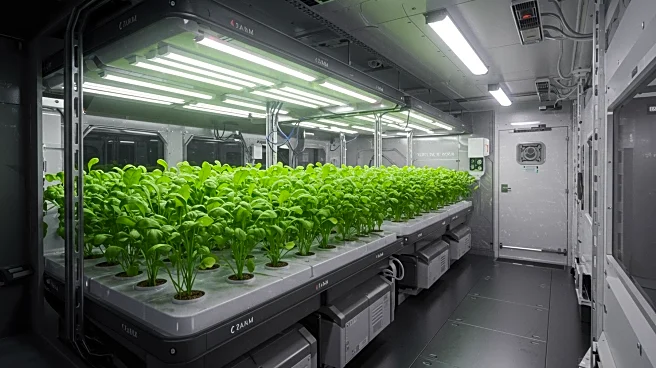What is the story about?
What's Happening?
NASA, in collaboration with the Canadian Space Agency, has concluded its Deep Space Food Challenge, aimed at developing novel food production systems for long-duration space missions. The challenge awarded three winners, including Interstellar Lab, which received the $750,000 grand prize for its NuCLEUS system. This autonomous system grows microgreens, vegetables, and mushrooms, and sustains insects for astronaut diets. Interstellar Lab has partnered with aerospace company Vast to integrate a spinoff of NuCLEUS, called Eden 1.0, on a planned commercial space station. Other winners include Team SATED and Team Nolux, which developed innovative cooking and photosynthesis systems, respectively.
Why It's Important?
The advancements from the Deep Space Food Challenge are crucial for future space exploration, particularly missions to Mars and the Moon. These technologies promise to enhance the sustainability and quality of food available to astronauts, addressing the challenges of limited resources and harsh environments in space. The innovations could also have terrestrial applications, potentially revolutionizing food production on Earth by offering new methods for growing food in resource-scarce areas. The challenge highlights the importance of interdisciplinary collaboration in solving complex problems related to human survival in space.
What's Next?
Interstellar Lab's partnership with Vast to deploy Eden 1.0 on a commercial space station marks a significant step in applying these technologies in real-world space environments. The ongoing testing and commercialization efforts by Team Nolux and Team SATED suggest further developments in space food technology. NASA plans to open a new competition inspired by the Deep Space Food Challenge this fall, which could lead to additional breakthroughs in food production systems for space missions.

















